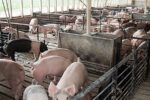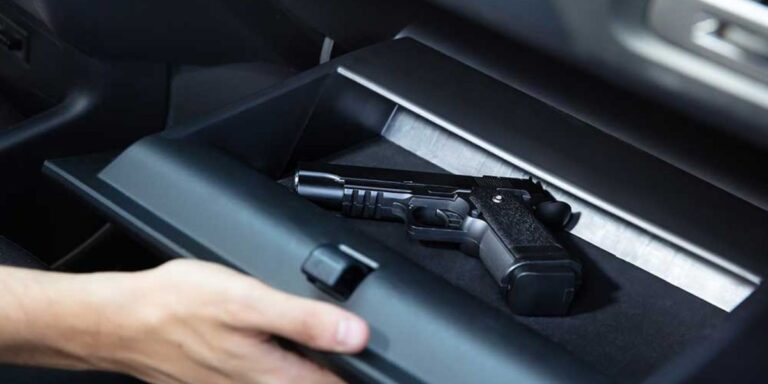One such piece of regulation that all pet owners in Louisiana should be aware of is the recently passed Pet Feeder Law. The goal of the law is to address issues related to public health, animal welfare, and the general public by regulating pet feeding practices.
This post will outline the key provisions of Louisiana’s recently passed pet feeder law and discuss the implications for pet owners around the state.
What is the New Pet Feeder Law in Louisiana?
The purpose of Louisiana’s Pet Feeder Law is to control how pet owners feed their animals and pets in public areas in order to avoid the problems that might result from uncontrolled feeding.
In order to preserve the health of the animals and the cleanliness of the town, the law contains recommendations for pet owners and locals who might decide to feed strays or wild animals.
Among the law’s essential elements are the following:
Designated Pet Feeding Areas: According to the law, pet owners must provide their animals with food in a regulated setting, either indoors or in a private, designated outside area. This lowers the possibility of food waste and keeps wild animals away.
Feeding Strays or Feral Animals: In order to address the threats to animal health, hygienic conditions, and overcrowding, the legislation prohibits feeding stray or feral animals in public locations.
Food Waste and Sanitation: Appropriate waste disposal is a significant component of the law. To avoid littering and drawing unwanted bugs, food scraps and leftover pet food must be cleaned up and disposed of properly.
Animal Health and Safety: The law establishes guidelines for making sure that animals are fed safely and healthily, including appropriate food handling and cleanliness procedures. This is to stop the spread of illness and pollution.
What Does Louisiana’s Law Mean for Pet Owners?
There are a number of significant adjustments and obligations that Louisiana pet owners must be aware of. Let’s examine the implications of these developments for you and your animals:
- Giving Pet Food in Appropriate Places
The new regulation emphasizes that it is not a good idea to feed pets in public or unregulated areas. To prevent food waste from leaking into other places, pet owners who allow their animals to wander freely or who keep their pets outside should set up a designated location for feeding.
If you reside in an urban or suburban location, where leaving food unattended might draw pests like stray cats, rodents, and raccoons, this guideline is especially crucial.
Establishing a specific feeding space lowers the possibility of drawing undesirable animals or making a nuisance in your yard by ensuring that the pet’s food is contained and that any leftovers are readily cleaned up.
Florida’s New Pet Feeder Law: What Every Pet Owner Needs to Know
- Limitations on Feeding Feral or Strays
Louisiana’s Pet Feeder Law restricts the practice of feeding stray or wild animals, despite the fact that it is frequently tempting to do so, particularly when we witness their need.
A number of problems can arise when stray or wild animals are fed in public areas:
Strays may become overpopulated as a result of uncontrolled feeding, which can cause strays or wild animals to gather in one place.
This may put a burden on nearby animal shelters and aid in the spread of illness.
Health Risks: Diseases and parasites can be carried by wild or feral animals. Giving them food may unintentionally expose people or other animals to these health hazards.
Community Nuisances: Feeding wild animals in public areas can lead to annoyances like trash digging, food detritus left behind, or even accidents.
Since municipal animal control or shelters are better suited to care for and relocate stray animals, the law encourages individuals to report them to them.
Massachusetts’s New Pet Feeder Law: What Every Pet Owner Needs to Know
- Appropriate Food Waste Disposal
The correct disposal of food leftovers is one of the most crucial legal requirements.
Clean up and dispose of any leftover food right away, whether it came from your pet’s bowl or from stray feeding. Food left out might draw mice, bugs, and larger species.
This means that as a pet owner, you must be careful to clean up after your pet eats.
To preserve hygiene and stop animals from searching through trash, you should promptly dispose of food waste whether you’re feeding your pet indoors or in a designated outdoor space.
Michigan’s New Pet Feeder Law: What Every Pet Owner Needs to Know
- Feeding Safety and Health Regulations
The safety and health of pets as well as the animals being fed are likewise prioritized by the law. Pet owners need to understand proper feeding, storage, and food quality.
This involves keeping pet food fresh and making sure feeding bowls are cleaned on a regular basis. You can reduce the danger of contamination, foodborne illnesses, and other health issues by adhering to these guidelines.
Conclusion: Louisiana’s Responsible Pet Ownership
The new Pet Feeder Law in Louisiana supports ethical pet ownership and fosters a community and pet-friendly environment.
Knowing and abiding by the law will help you avoid fines and make sure you’re operating in the best interests of your neighbors and your pets, whether you’re feeding stray animals or your own pets.







Leave a Comment